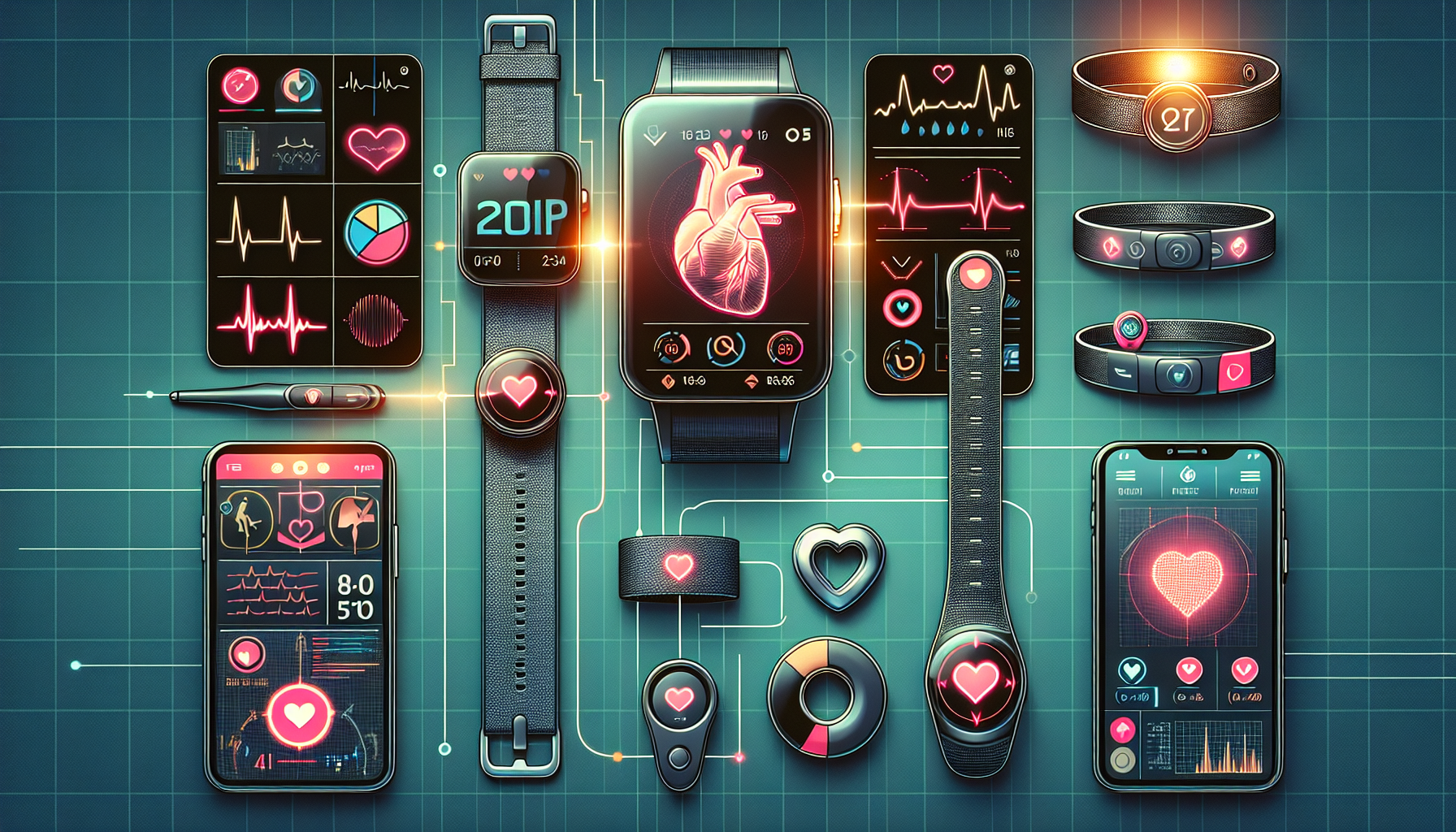In an age where technology is seamlessly integrated into our daily lives, the realm of healthcare has not been left behind. Advancements in technology have provided new ways to track and support cardiovascular health, empowering individuals with the tools they need to take proactive measures towards heart health maintenance and disease prevention. From wearable devices that monitor heart rate and blood pressure to applications that guide users through heart-healthy exercises, technology is reshaping the landscape of cardiovascular care.
Harnessing Wearable Technology for Heart Health Monitoring
One of the most significant technological advancements in cardiovascular health is the development of wearable technology. Devices such as smartwatches and fitness trackers have become ubiquitous, providing users with real-time data about their heart rate, activity levels, and even sleep patterns. These devices help users stay informed about their cardiovascular health and encourage an active lifestyle.
For instance, many wearable devices come equipped with features that can detect irregular heartbeats, like atrial fibrillation, which can be a precursor to more serious conditions such as stroke or heart failure. By alerting users to potential issues, these devices facilitate early intervention and could potentially save lives.
The Role of Mobile Health Applications
Mobile health applications are another tool revolutionizing the way we approach heart health. Apps designed to promote cardiovascular health often include features such as medication reminders, dietary tracking, and educational resources. They serve as a digital companion that assists users in managing their heart health effectively.
For more detailed insights into cardiovascular health and its importance, readers can explore Cardiovascular Health, which provides comprehensive information on the topic.
Interactive Platforms for Cardiovascular Education
Education is critical when it comes to managing and preventing heart disease. Interactive platforms that offer educational content about the heart, its functions, and diseases can significantly enhance an individual’s understanding and awareness. Through videos, articles, and interactive diagrams, these platforms help demystify complex medical information, making it more accessible to the general public.
The Impact of Telemedicine on Cardiovascular Care
Telemedicine has been a game-changer in many areas of healthcare, including cardiology. Patients can now have virtual consultations with their cardiologists, receive remote monitoring for their heart conditions, and access care that might have been previously out of reach due to geographic or mobility constraints.
Telemedicine services can also facilitate better management of chronic conditions, such as hypertension or heart failure, by providing continuous, remote care that can lead to early detection of complications and timely adjustments in treatment.
Integrating Data for Comprehensive Care
The integration of data from various sources is essential for a holistic approach to heart health. Electronic health records (EHRs) that compile information from wearable devices, mobile apps, and physician notes create a comprehensive view of a patient’s cardiovascular health. This integration facilitates better decision-making for both patients and healthcare providers and tailors treatment plans to individual needs.
For further reading on the influence of lifestyle factors on heart health, consider exploring articles such as The Impact of Stress on Your Heart and How Obesity Affects Cardiovascular Health, which provide valuable insights into how everyday choices can affect cardiovascular well-being.
Challenges and Considerations
While technology offers remarkable benefits, it is not without challenges. The accuracy of wearable devices can vary, and there is a need for standardized validation to ensure the reliability of the data they provide. Additionally, with the vast amount of health data being collected, privacy and security concerns must be addressed to protect sensitive information.
External Resources to Enhance Your Understanding
To delve deeper into the specifics of cardiovascular health technology, here are some niche resources:
- The American Heart Association’s guidelines on wearable technology
- A scholarly article on the use of mobile apps for cardiovascular disease prevention
- Research on the effects of telemedicine interventions on heart failure management
- A study on the integration and utility of EHRs in cardiovascular care
Future Directions in Cardiovascular Health Technology
The future of cardiovascular health technology is bright, with continuous innovation aimed at improving patient outcomes. Potential developments include more sophisticated algorithms for data analysis, the integration of artificial intelligence to predict health events, and advancements in non-invasive monitoring tools.
Ultimately, the goal of integrating technology into cardiovascular health is to create a patient-centered approach that not only treats disease but also promotes overall well-being. As technology evolves, it holds the promise of transforming the healthcare landscape, making cardiovascular care more efficient, accessible, and personalized.



